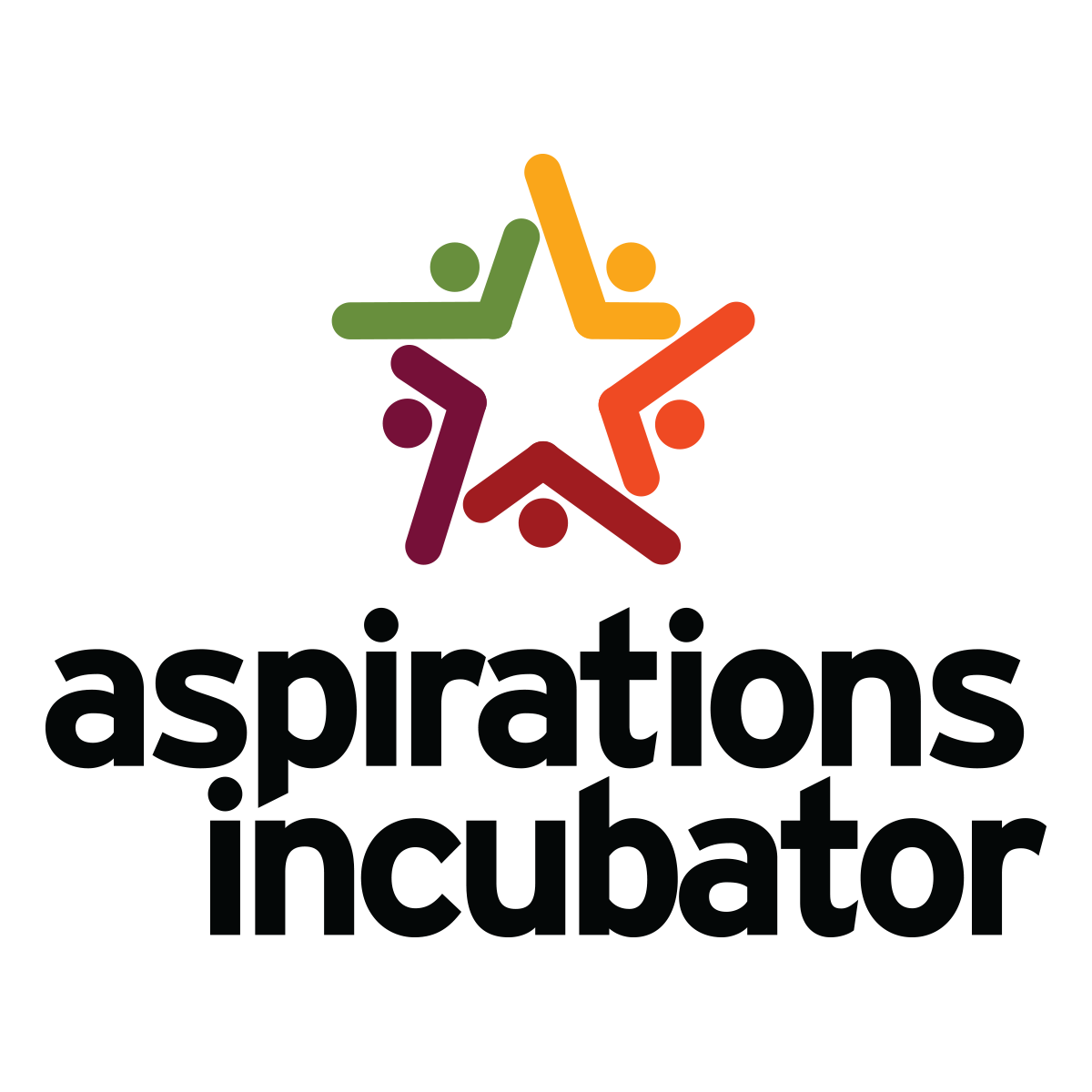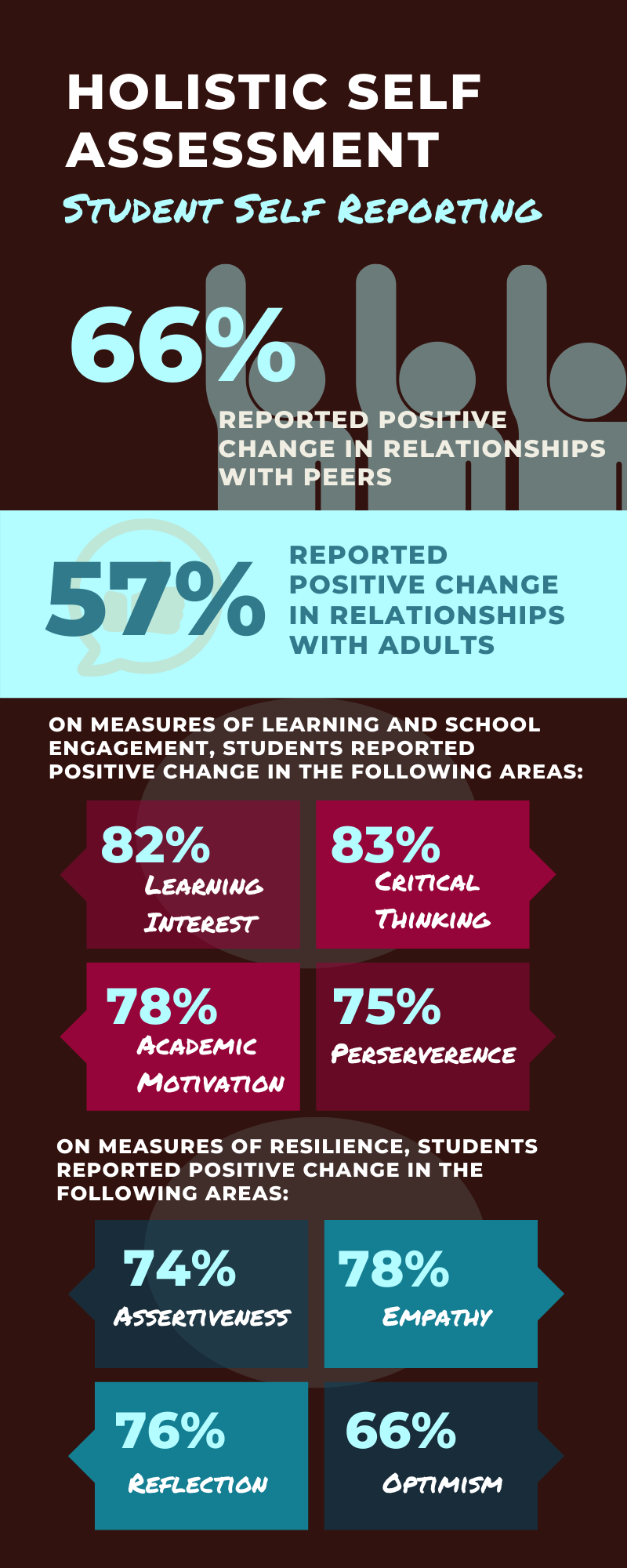
The Results
Through an independent longitudinal evaluation over six years, qualitative and quantitative data indicate that the Aspirations Incubator programs have a positive impact on youth participants.
The Data Innovation Project at the University of Southern Maine conducted a longitudinal independent evaluation of each Aspirations Incubator program site – their successes and challenges, and the impact the program had on the youth participants over the years. The evaluation findings will help determine if the Aspirations Incubator’s approach is worth pursuing in other rural communities, and whether it should live on beyond the six-year pilot.
New evaluation reports were issued each year from 2019 - 2023, and the Aspirations Incubator is pleased to share the final 6-year evaluation report about the impact of 6 years of programming, from September 2017 to August 2023. A retrospective of the first half of the pilot phase can be found in an interim evaluation report for Years 1-3, which was released in June 2021. Individual reports for Years 1, 2, 4, & 5 can be found at the links below.
The final report covers Year 6 and offers reflections on the impact of the Aspirations Incubator on both the students and the organizations in the pilot, as well as lessons learned and implications for policy makers and funders focused on youth development and out-of-school time programs. This independent evaluation shows that the Aspirations Incubator is helping young people feel more connected to their community, more open to new experiences and people, more engaged in school, and more likely than their grade level peers to enroll in post-secondary education pathways after graduation.

Evaluation Snapshot
Promising results from Year 6
Final Participant Outcomes
Self-Reported Student Assessment Results
As part of the evaluation of their program’s impact, partner sites have implemented the Holistic Student Assessment – Retrospective Self Change (HSA-RSC), an assessment tool from Partners in Education and Resilience (PEAR), which asks students to reflect on their involvement with the program and report the extent to which the program influenced them positively or negatively on a number of criteria.
Supplemental Student Survey Results
Cohort 1 and 2 students were also asked to participate in a short supplemental student survey after the completion of their 8th grade year. The survey contained 30 questions asking students about their experiences with the program, the extent to which the program has helped them learn skills (e.g., being in this program has helped me take with other people even when we disagree), and self-reported statements about their own behaviors (e.g., I try new things even when I’m not sure I will like them). 145 students completed the 8th grade survey, with an average response rate of 91% across the two cohorts.

More than two dozen students included written comments about how the program has allowed them to experience new things and what that has done for their worldview.
One student said, “It has definitely helped me experience things I wouldn’t have normally been able to or would have thought to do before. It has helped me [get] to know different people and helped me get out of my shell.”
Another student offered, “It’s helped me understand different cultures better and get closer with my community.”

“It taught me how to be flexible with thinking and taking challenges head on while persevering through them even when they’re difficult.”
-8th Grade Student





